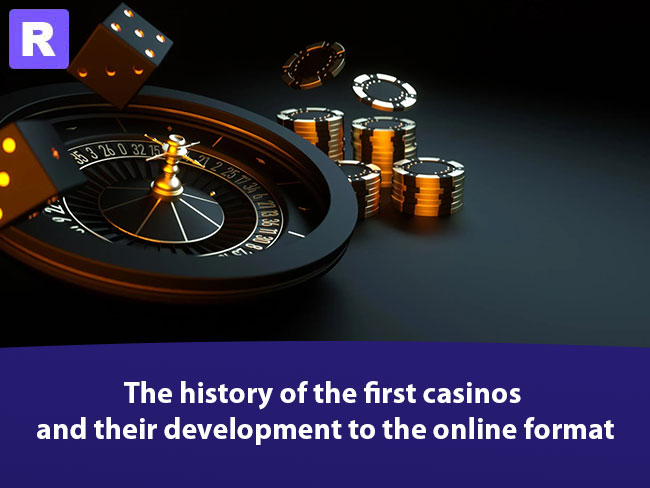The idea of a formal gambling spot began centuries ago, when small groups gathered for hush-hush games. People found excitement in testing luck with dice, cards, or rudimentary wheels. These gatherings took place in homes, taverns, or even back rooms, long before the first official gambling halls. During that time, authorities had different rules on betting, so many people played quietly to avoid trouble. Winners often celebrated on the spot, while losers plotted their next try.
People have enjoyed slot games for ages, and many found new styles through https://legjobbonlinekaszinokmagyar.com/valodi-penzes-nyerogepek, shaping the rise of online casinos. Early slot-like machines were simple, featuring just a few reels with basic symbols. Still, they caught people’s attention right away. Over years, these machines shifted from mechanical to electric, paving the path to modern gaming. By the late 19th century, slot machines sat in bars and saloons. This trend set the stage for a larger movement, one that changed how people bet everywhere.
Early Gambling Houses
Casinos presented a new form of legal fun, and folks tried many risky bets. Some enjoyed new ideas, like card tables or dice games. Others tested their luck with shining reels or big wheels. Over time, these halls gained stronger rules and a sense of grandeur. Fine clothes and bright decor turned many heads, building a special vibe. At first, only a select group could afford these spots. Little by little, the doors opened to a broader audience, which boosted demand for unique experiences.
Local rulers often taxed these halls, though many owners paid willingly. The money from such taxes sometimes funded roads or public works, helping more towns. This setup formed a link between bets and daily projects, making these sites even more accepted. Casinos, eager to expand, introduced free slots with simple rules, adding more variety across Europe. This shift in focus raised the appeal of these places, inviting fresh crowds to join in.
The First Modern Casinos
In the mid-1800s, certain cities rose as hot spots for refined casino experiences. These places drew visitors from near and far. Lavish music, fancy shows, and diverse games made them stand out. With stately buildings housing card rooms and lounge areas, guests felt a touch of luxury. The staff included well-trained dealers, waiting to assist players through each spin or hand.
Gambling houses gained more acceptance, partly thanks to strict guidelines. These rules addressed behavior, fair play, and prize payouts. If operators broke them, local officials stepped in. This oversight showed the public that their bets might be safer than in shady back rooms.
Beyond the tables, organizers introduced live performances to keep guests around. This gave known singers and actors a stage, turning casinos into entertainment spots. Fancy dinners and art displays also enticed visitors. By combining skill-based play with broader attractions, these new venues carved a place in popular culture, marking a big step forward for modern casinos.
The Shift to Online Formats
As computers entered homes, gambling operators spotted a huge chance. They saw that many people might enjoy casino fun without leaving the house. So, early online gambling sites appeared in the mid-1990s. These platforms started with simple pages and a few games, mostly classic card options. Soon after, more complex games joined in, including digital slots and table favorites.
Internet speeds were slower then, so the graphics were basic. Still, folks liked the new freedom to log on anytime. Virtual payments grew safer with encrypted pages, building more trust. Third-party monitors also stepped in to ensure fair results. These ideas helped online gambling gain ground, reaching a larger group of players.
Casino brands that once ruled land-based spots now explored digital openings. They could show a full list of games, bonus deals, and support channels. If problems arose, live chat or phone lines offered quick help. By covering these needs, online gambling sites built a strong base that endures now.
Present-Day Innovations and Future Outlook
Today’s online casinos provide an even bigger mix of gaming choices. Players can pick from hundreds of slot titles, video poker, or live-dealer games. Many sites also include sports bets and quick mini-games. Smart devices let people play on the go, appealing to many lifestyles. As internet speeds climb, game visuals and sounds get sharper, boosting immersion.
Some online casinos now offer big prize pools that rival top land-based spots. Progressive jackpots can spark huge wins, drawing both new and devoted players. Virtual reality also gained ground, letting users enter a digital hall to chat or watch others. Such features hint at a future with even more interactive play.
Fairness remains key, so licensed sites must meet strict guidelines and regular tests. That ensures fair outcomes, so players can trust the process. Payment methods broaden each year, with online wallets and other tools. This constant growth in convenience and variety shapes the path ahead, pointing to more change on the horizon. Expect more breakthroughs that blend creativity, skill, and technology as these sites continue to grow.


